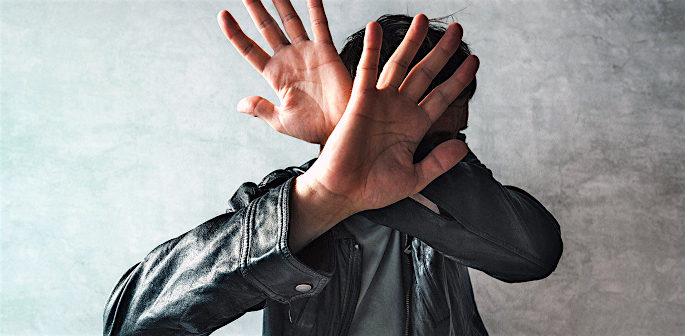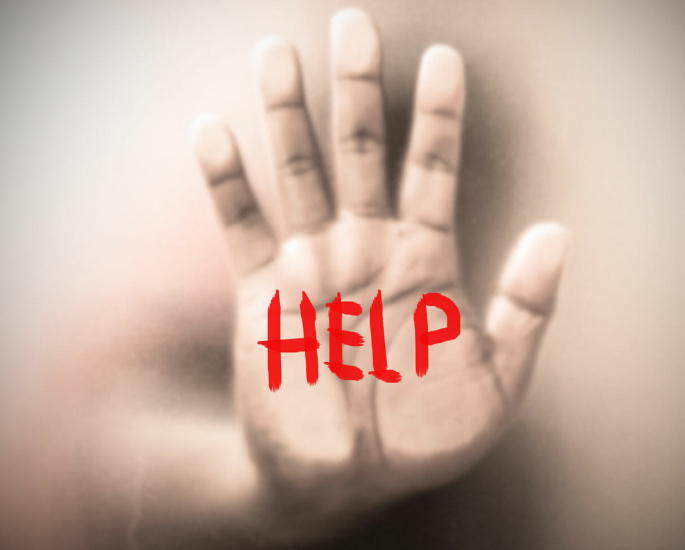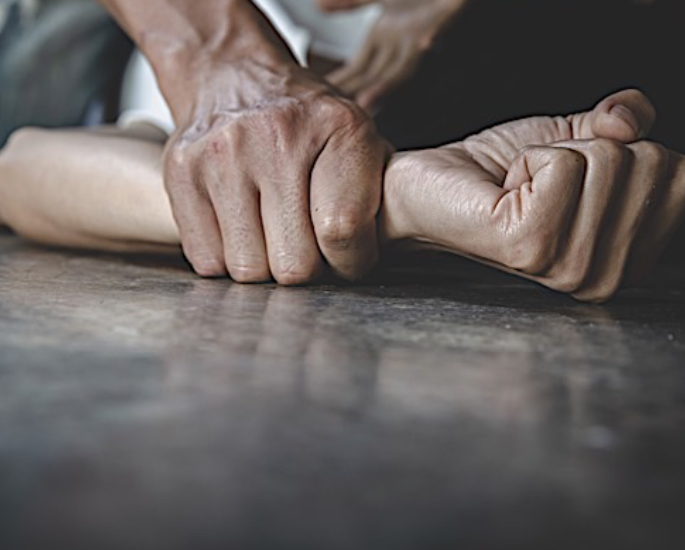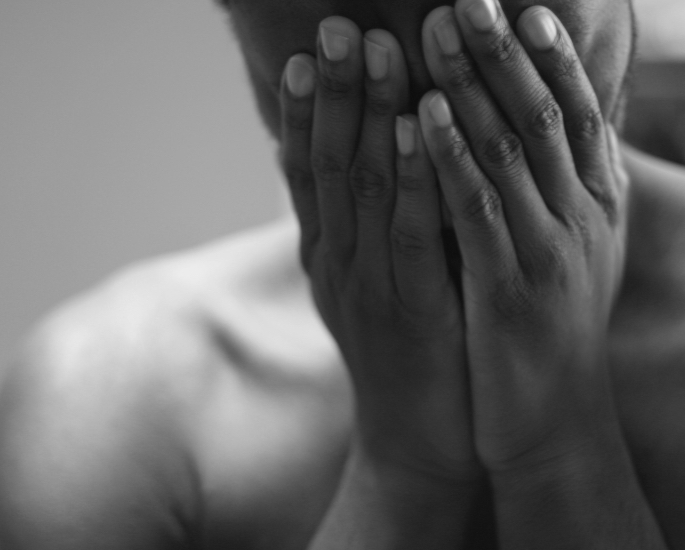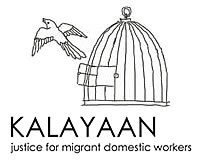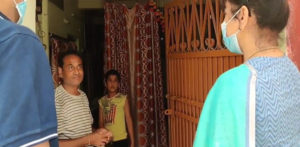"Desi men are survivors and equal victims of domestic abuse"
Domestic abuse within intimate relationships has always been a taboo topic. Many couples do not want to discuss their experiences, while some want to keep it hidden.
Before laws and legislations, this form of abuse was not criminalised. Society believed it to be a personal matter between the couple and only the couple.
Over the last few decades, domestic abuse has been challenged globally. It is no longer accepted as part and parcel of a relationship.
While survivors are slowly speaking out, there remains a group of victims whose voices are often unheard.
Desi men are victims and survivors of domestic abuse. Yet due to stereotypes and expectations, remain quiet. This means they subsequently suffer in silence.
DESIblitz explores the effects of domestic abuse on Desi men.
Desi Men and Domestic Abuse: The Stereotypes of their Silence
Reports demonstrate more than 40% of domestic abuse cases are of male victims. This shows abuse afflicted on men is almost equal to that against women.
Yet, the male victims are ignored in mainstream media.
This is largely due to stereotypes society places on men. For instance, society expects men to behave in the traditional ‘macho’ manner.
This includes being mentally and physically strong, acting as leaders and being dominant.
It is not expected for men to be emotional, sensitive or submissive. Men with these attributes are often mocked as not being ‘manly enough’.
These stereotypical characteristics are heavily emphasised within South Asian upbringing. As a result, Desi men are influenced and forced to portray themselves in a certain way.
This typical ‘toxic masculinity’ culture is infused in behavioural teachings. Desi men are taught from a young age ‘boys don’t cry’. They are taught crying and submission are features for women, not men.
Desi communities further view men who show their emotional side, as being weak and feminine.
If a Desi man is dominated by a woman, he is emasculated and powerless, therefore, he is weak.
This leads to men, being abused by female partners, to remain in their violent relationships. They do not want to seem weak or controlled.
These stereotypes cause Desi men to stifle and silence themselves. They became unseen and unheard victims of domestic abuse.
It comes as a surprise for many to hear men are equal victims of domestic abuse. This is due to men pretending they are not mistreated, in fear of shame and ridicule.
Especially from the South Asian community, where ‘toxic masculinity’ is often idealised. They do not want to stray away from the typical ‘male character’.
Domestic abuse within the South Asian community still remains a forbidden issue. Regardless of who is affected by domestic abuse, the family are often the cause of the victim’s silence. Hence, encouraging and enabling the ill-treatment.
This is because it is believed, domestic abuse causes shame and disrespect upon the family. This view argues, reputation and respect, weigh more than the mental and physical wellbeing of Desi individuals.
When the domestic abuse victim is a Desi man, he is immediately looked down upon. At times, not even taken seriously. All because he is a ‘man’, he should ‘man up’, otherwise he is ‘pathetic’.
Desi men are scrutinised and belittled when impacted by domestic abuse. Derogatory terms are thrown their way.
They become synonymous with insults and are known as everything but victims.
The cruelty they suffer is greatly ignored and they are not treated as victims at all.
Hence, 52% of male victims stay in abusive relationships due to embarrassment. They do not want to be known as ‘domestic abuse victims’.
Sometimes it is because of their denial, they refuse to accept they are being abused. Desi men continue to remain quiet on their abuse as a result.
Often, they do not realise their partners are abusing them. This is due to the stereotype; domestic abuse is only physical.
Domestic abuse has many forms and is not solely based on one form of violence.
Controlling decisions, forced isolation from family and friends are of many types and signs of domestic abuse. It is common for perpetrators to invade the privacy of victims as well as verbally abusing them.
This impacts the mental wellbeing of victims. Mental health for men is largely ignored due to the ‘macho man’ stereotypes too.
It is further common for men to not acknowledge their mental decline due to this. Mental abuse is not noticed as a form of domestic abuse.
Desi men find themselves trapped and exploited in toxic relationships. Some refuse to get help for a number of reasons.
For instance, getting help means having to leave the relationship and environment. Thus they would have to leave their children behind. Something which the male victims do not want to do.
This means they sacrifice their wellbeing for the sake of their family.
ManKind is an active organisation which seeks to help male domestic abuse victims. Their studies show at least 120 cases where male victims decline from receiving help for the sake of staying with their children.
68% of male victims fear they may never see their children again.
Fear is a big part of Desi men remaining in unhealthy, abusive relationships.
28% fear their female partners may end their own lives. While 24% stay to keep themselves safe from potential murder.
These statistics come from male victim-focused organisations. Mass media continues to ignore abused men.
Despite scarce research of severity of male victims in abusive relationships, research of abuse same-sex relationships is rare.
Domestic Abuse in Same-Sex Relationships
Same-sex relationships have higher rates of domestic abuse than heterosexual relationships. Studies suggest one in four gay men have experienced forms of domestic abuse within their lifetime.
The levels of domestic abuse within both forms of relationships are similar, yet same-sex cases have limited research.
For instance, studies harking back to 2008-2009 show 6.2% of gay and bisexual men face abuse, while only 3.3% of heterosexuals do.
It is still difficult to measure the rise of same-sex domestic abuse. This is due to the restricted reports and investigations as well as the silence of the victims.
The limited representation of same-sex domestic abuse cases is also a contributing factor in men’s silence.
This is because many same-sex couples begin to believe they are the only ones going through domestic abuse. Without seeing others speak out against the abuse, they begin to believe the abuse is not real.
This can cause males in same-sex relationships to feel marginalised.
Often Desi men commonly hide their same-sex relationships due to fear of stigma and discrimination. As a result, same-sex victims of domestic abuse prefer not to alert authorities or seek help.
They choose to suffer at the hands of their partners rather than strangers. This further isolates Desi men in abusive relationships.
Some studies regarding domestic abuse in same-sex relationships also argue the victims view themselves negatively.
By having negative perceptions about themselves, the male victims believe they deserve the abuse.
When victims believe they deserve the abuse, it becomes difficult to help themselves. This leads to them accepting the violence, therefore, do not attempt to stop it.
The Effects of Domestic Abuse on Desi Men
Domestic abuse often leaves men with long term psychological scars. The victims live with a sense of undermining their own existence. This is the result of the emotional and mental torture they suffered.
After surviving an abusive relationship, many find it difficult to get into new relationships. This also includes maintaining relationships with other individuals in their life.
Often they lose contact with many individuals and remain alone.
This results in the decrease of social skills and confidence in male victims causing them to face difficulties when interacting or attempting to start their life afresh.
Anxiety and low self-esteem also become difficult parts of their lives.
Male victims are three times more likely than woman to not alert anyone about their abuse. Their silence also extends to them not trying to get any help even after leaving the relationship.
Due to this, male survivors of domestic abuse succumb to their loneliness and negative internal thoughts. This worsens their psychological and emotional wellbeing.
Only 10% of male victims are willing to notify authorities in comparison to their female counterparts. As for women, 16% more likely to go to the police than men.
While men are less likely to report domestic abuse cases against their partners, police are also less likely to arrest women abusers.
This shows how ignorant law enforcement is in cases of domestic abuse despite the progress particularly, towards male victims.
The low-rate arrests demonstrate how leniently women abusers are treated. Male victims are not taken seriously which causes many to not ‘bother’ coming forward for justice.
Due to the lack of support from authorities and individuals who are meant to protect and help them, Desi men see themselves as being alone. This increases the risk of mental health disorders.
Victims of domestic abuse are more likely to fall into depression and suffer from post-traumatic-stress-disorder increasing the risk towards their own safety.
Unfortunately, domestic abuse for some Desi men can lead to them committing suicide.
When a married couple separates after a domestic abuse case, the risk of suicide increases. This is mostly seen in younger men.
If not while in the relationship, the male victims still lose their life at the hands of domestic abuse.
Domestic abuse does not only affect women, the atrocities and torture are also subjected to men too. However, there still remains a dearth in resources and help for male victims of domestic abuse.
Many organisations provide statistics and details for helping female victims while neglecting men.
However, there are some helplines which continue to be a safe place for male victims bringing to light the issues of domestic abuse towards men.
If you or anyone you know or suspect, is being abused, the websites below provide information and hotlines to help:
- Respect: Men’s Advice Line – A helpline created for male victims of domestic abuse.
- ManKind – Organisation which also takes donations to help provide for shelter and other necessities for male victims.



















































